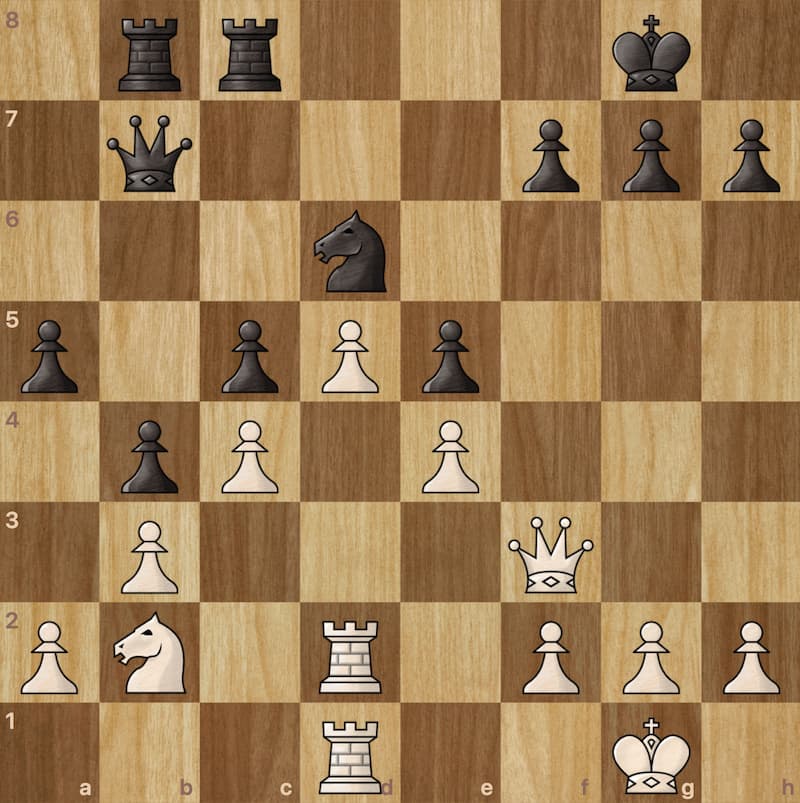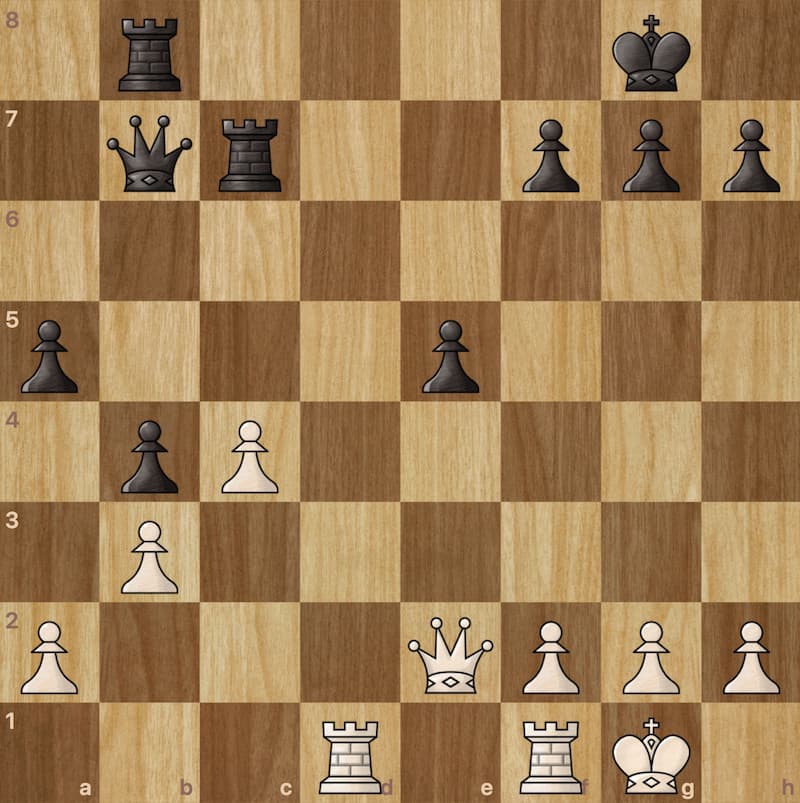In chess, passed pawn is a pawn that can not be stopped anymore by one of the opposing pawns. A passed pawn is rather valuable especially in the endgame.
Passed pawns are dangerous and they have to be stopped. Assuming that the pawn can not be captured, we can stop them by either of the following.
- attacking the square in front of the pawn
- or placing a piece in front of the pawn to block it from advancing
To put it more simply, a passed pawn is a pawn that does not have another pawn in front of it in the same file or in adjacent files.
This means the pawn has more potential to reach the 8th rank and promote more than other pawns. Passed pawns are usually advantages in games, however they can also be a disadvantage.
![]() Related: How To Use Pawns in Chess
Related: How To Use Pawns in Chess
The player with the passed pawn will try to use all sorts of Chess tactics, traps, and attacks to eliminate the piece that prevents the pawn to promote to a Queen. But this will be something of a future lesson. Now we are going to focus on how to create a passed pawn.
How To Create a Passed Pawn
Making a pawn a passed pawn is achieved by eliminating all enemy pawns in front on the same file and all enemy pawns on adjacent files. If you can’t push the pawn without an enemy pawn blocking or capturing it, it’s not a passed pawn yet.
Examples
Here are examples of what passed pawns are and how you can take advantage of them when you have them.
Example #1
The position below illustrates a rather famous example of the creation of a passed pawn.
At first sight the position looks about even, but White’s pawns are already on the fifth and sixth rank. Not to mention Black’s King being further away from the pawns then White’s King.
1.g6 White is going to sacrifice a pawn.
2.f6 and White is going to sacrifice the second pawn so White can push the h pawn and become a passed pawn.
2…gxf6 Black has no choice. Black has create multiple passed pawns but are much further away from promoting than White’s single passed pawn.
3.h6 and now White has created a passed pawn and Black’s King is too far away to be able to stop it from promotion.
Making one Queen will be sufficient to win the game.
Advantage or Disadvantage
There are two points to consider when deciding whether or not a passed pawn is an advantage or a disadvantage.
1. Can The Pawn Be Blocked?
Can the passed pawn be blocked by another piece, indefinitely? If so, then the precious passed pawn might end up actually doing more harm than good to you. The pawn can block your own Bishops and Rooks in the endgame.

2. Can The Pawn Safely Remain Until Needed?
If you have a passed pawn, but still have plenty of moves to play elsewhere on the board with other pieces, your passed pawn can remain in place and act as an insurance policy as the game progresses. If you find yourself progressing into a vulnerable position, your passed pawn is commonly quite useful, especially in endgames.

When you find yourself with passed pawns in future games, consider these two questions and determine whether it will be good or bad throughout the game.
Conclusion
If a passed pawn can’t be conveniently blocked. The pawn can be pushed and be a thorn in an enemy strategy. Especially when a pawn gets pushed past the 5th rank, it will cause the enemy to start to sweat.
I hope this guide on passed pawns helped you understand what they are, why they’re generally an advantage and also why they could be a disadvantage. If you liked this post, you may want to learn other chess tactics like the Discovered Attack and Interfering.


